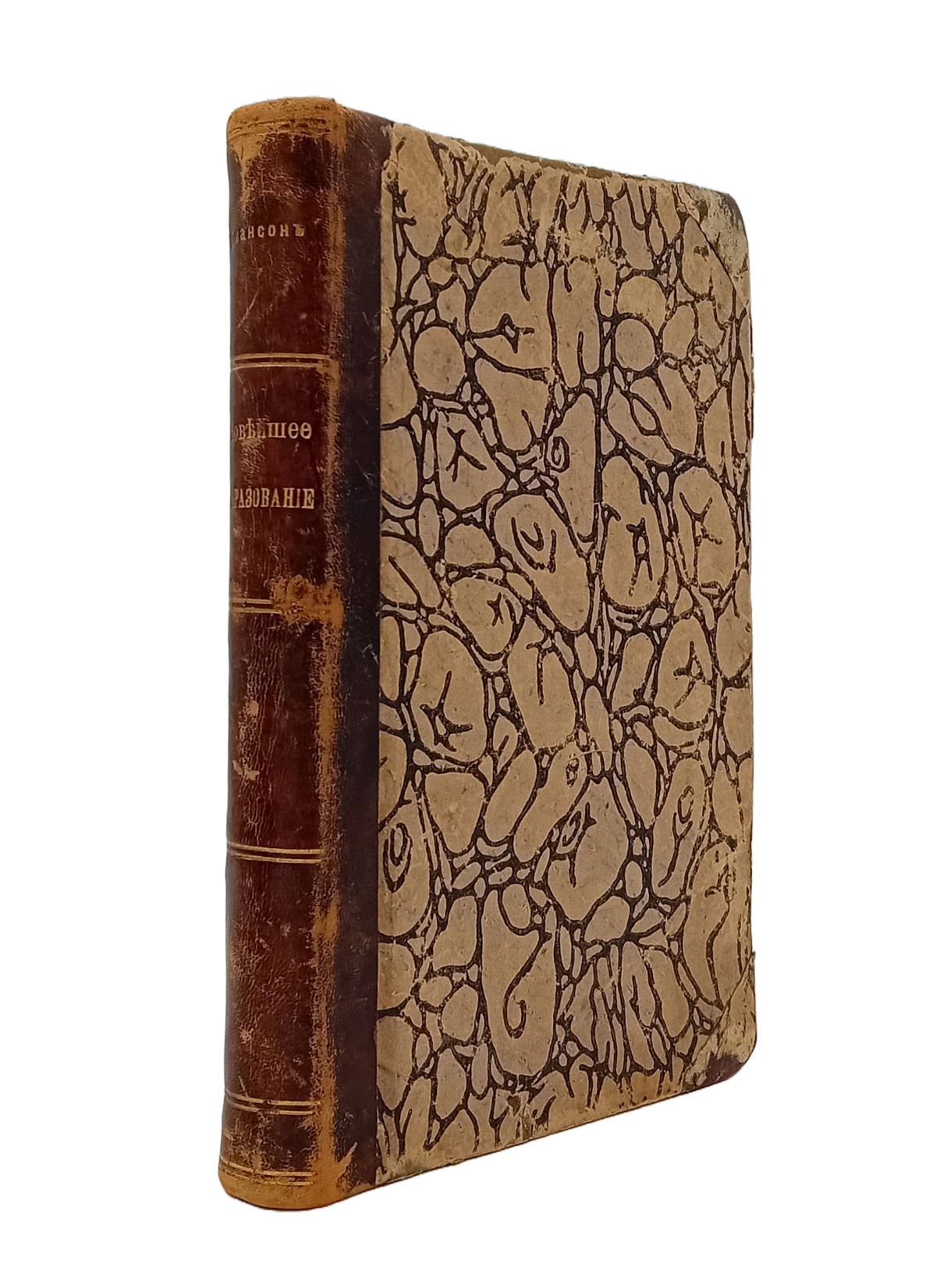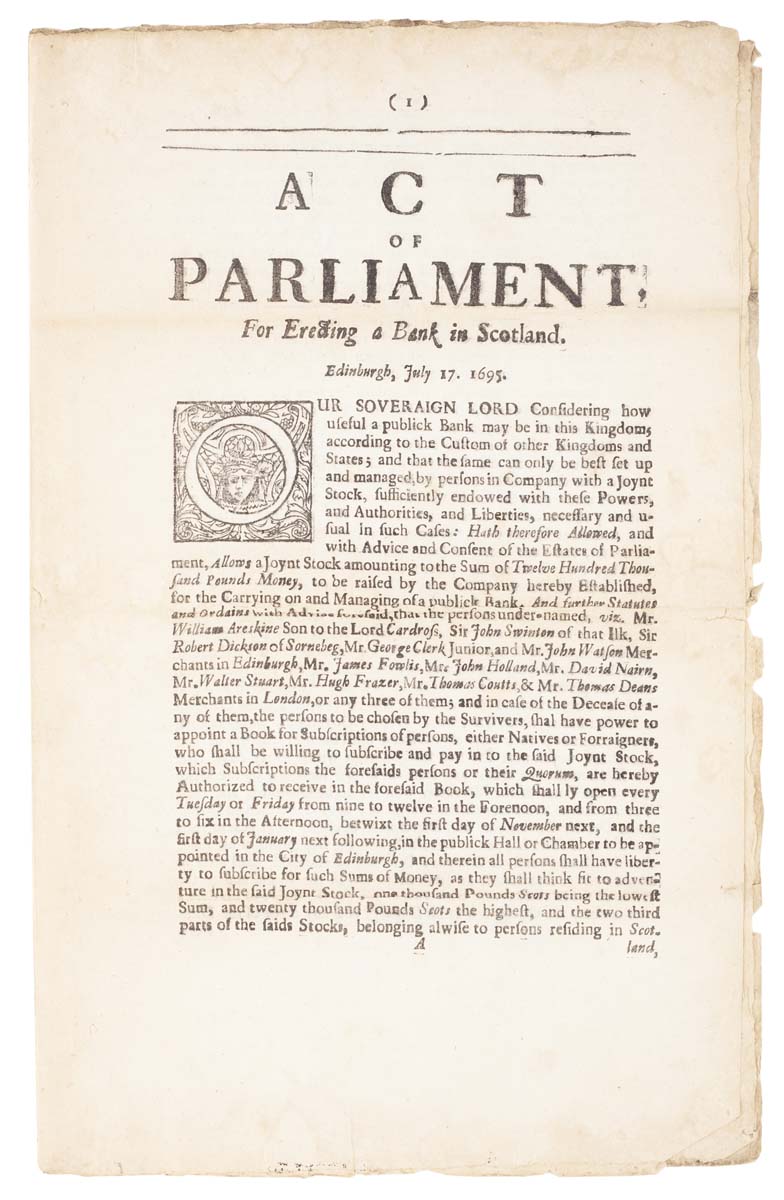
MILL AND EDUCATION IN RUSSIA
MILL, John Stuart, and Edward Livingston YOUMANS.
Новѣйшее образованiе: его истинныя цѣли и требованiя. Сборник статей въ защиту научнаго воспитанiя | Речь объ университетскомъ воспитанiи [The culture demanded by modern life: A series of addresses and arguments on the claims of scientific education and Inaugural address at St Andrews].
St Petersburg, Izdanie “Russkoi knizhnoi torgovli”, 1867.
8vo, pp. [6], xxvii, [2], iii, [1, blank], 415, [1]; 71, [1, blank]; occasional light foxing and staining, library stamp to half-title and title-page, but mostly clean; a good copy in contemporary quarter sheep with gilt panels and lettering to spine, decorated paper boards; corners reinforced with cloth, some wear at extremities.

Added to your basket:
Новѣйшее образованiе: его истинныя цѣли и требованiя. Сборник статей въ защиту научнаго воспитанiя | Речь объ университетскомъ воспитанiи [The culture demanded by modern life: A series of addresses and arguments on the claims of scientific education and Inaugural address at St Andrews].
First edition in Russian of these two works, published in the original that same year.
The Inaugural address would have been particularly pertinent to the Russian audience, with Mill’s focus on the broader basis of a good education and the role of schools and universities. Russia had experienced educational reforms in the 1860s, but these were still limited: the universities had gained autonomy in 1861, yet the government restrictions were imposed on them again after only a five-year hiatus. While central government had standardised curricula and widened educational opportunities to the masses, the implementation was inevitably slow and meanwhile the debate on the nature and method of education was being thoroughly examined.
Youmans’ work comprises lectures from various thinkers – including Herbert Spencer, Thomas Huxley, Michael Faraday, James Paget and John Tyndall – on subjects ranging from physics, zoology and economics. ‘In Youmans’s (as in Spencer's) view, science would ultimately promote stability, order, morality, and certainty, not anarchical, amoral liberation from past constraints’ (Mark Pittenger, “Youmans, Edward Livingston”, American National Biography Online). Again, these discussions were increasingly relevant in a country where serfdom had been abolished a mere six years previously; ideas of national identity and enlightenment through education were particularly topical.
See MacMinn, p. 98 (English edition of Inaugural address).
Not in COPAC; not in National Library of Russia. WorldCat lists one holding in the USA, at Harvard. Four copies at Russian State Library. We have been unable to locate any earlier Russian edition of either work.

